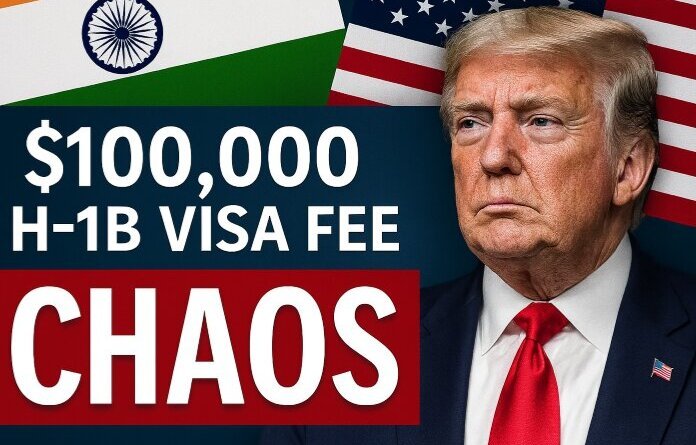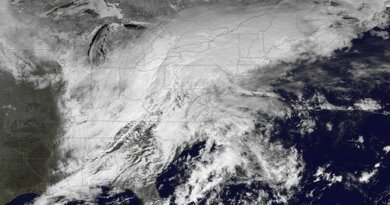Trump’s H-1B Fee Triggers Global Tech Turmoil

Introduction
A seismic shift hit the global tech landscape this week as U.S. President Donald Trump signed a proclamation on September 19, 2025, imposing a staggering $100,000 fee on companies sponsoring new H-1B visa applicants. The move sent shockwaves through India’s tech corridors and sparked immediate chaos across airports, corporate offices, and diplomatic channels.
Flight Frenzy and Fare Surge
Within hours of the announcement:
- Indian tech professionals rushed to board flights to the U.S. before the September 21 deadline.
- One-way fares from Delhi to New York skyrocketed from ₹37,000 to over ₹80,000.
- Emirates flights faced mid-air disruptions as panicked passengers demanded to disembark.
The urgency stemmed from fears that employers might delay or refuse to pay the new fee, leaving workers stranded outside the U.S.
India’s Diplomatic Response
India’s Ministry of External Affairs issued a statement expressing deep concern over the humanitarian and economic fallout. Officials emphasized:
- The importance of skilled talent exchange between India and the U.S.
- A commitment to studying the full implications and seeking a resolution that safeguards Indian professionals.
Tech Industry Alarm Bells
NASSCOM, India’s leading tech industry body, warned that:
- The abrupt fee hike could disrupt innovation pipelines and business continuity.
- U.S.-based companies may pivot to local hiring and alter delivery models to avoid visa-related costs.
Corporate Confusion and Strategic Shifts
Major IT firms are now:
- Re-evaluating overseas assignments and visa sponsorship budgets.
- Accelerating plans to expand U.S. onshore centers and reduce dependency on H-1B talent.
- Exploring hybrid work models and remote delivery hubs in India and Southeast Asia.
Voices from the Ground
Tech workers caught in the crossfire shared their stories:
- “I had just received my approval. Now my company is reconsidering everything,” said a software engineer from Hyderabad.
- “We’re being treated like liabilities, not assets,” noted a data analyst en route to San Francisco.
Economic Ripple Effects
The fee announcement has triggered:
- Volatility in airline stocks and travel aggregators.
- A surge in demand for legal consultations and immigration services.
- Concerns over brain drain reversal and talent retention in India.
Policy Analysts Weigh In
Experts suggest:
- The fee may be part of a broader strategy to boost domestic employment in the U.S.
- It could lead to renegotiations in bilateral trade and talent mobility agreements.
- Long-term effects may include reduced Indian representation in Silicon Valley leadership.
Looking Ahead
As the September 21 deadline looms, stakeholders across sectors are bracing for:
- Legal challenges and lobbying efforts by multinational corporations.
- Emergency visa workshops and webinars for affected professionals.
- Potential diplomatic talks between India and the U.S. to ease the transition.
Conclusion
This unprecedented move has not only disrupted travel and hiring but also reignited debates on global talent mobility, economic nationalism, and the future of tech innovation. For thousands of Indian professionals, the next few days will determine whether their American dream continues—or ends abruptly.





Poor formatting. Hard to read and follow.